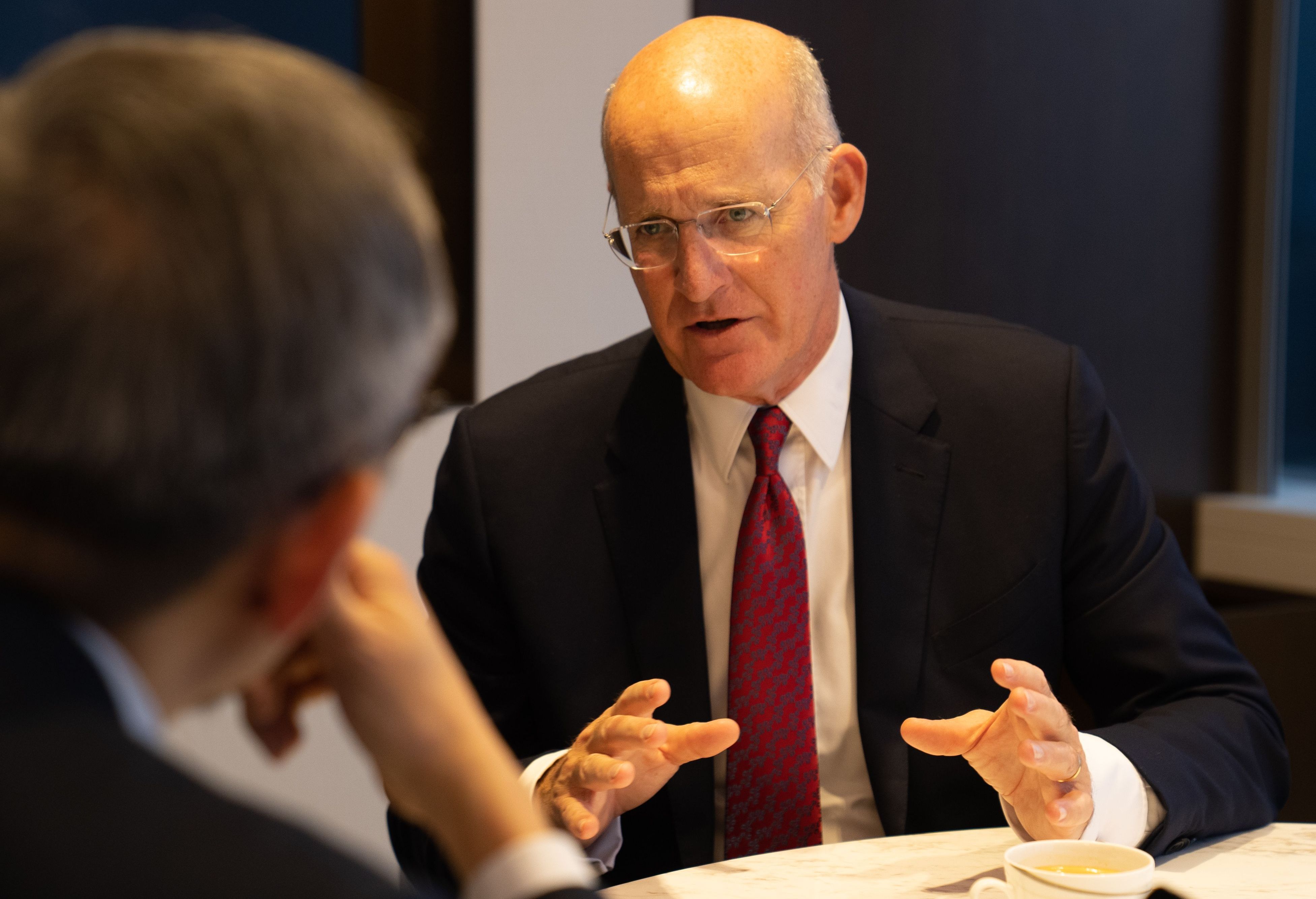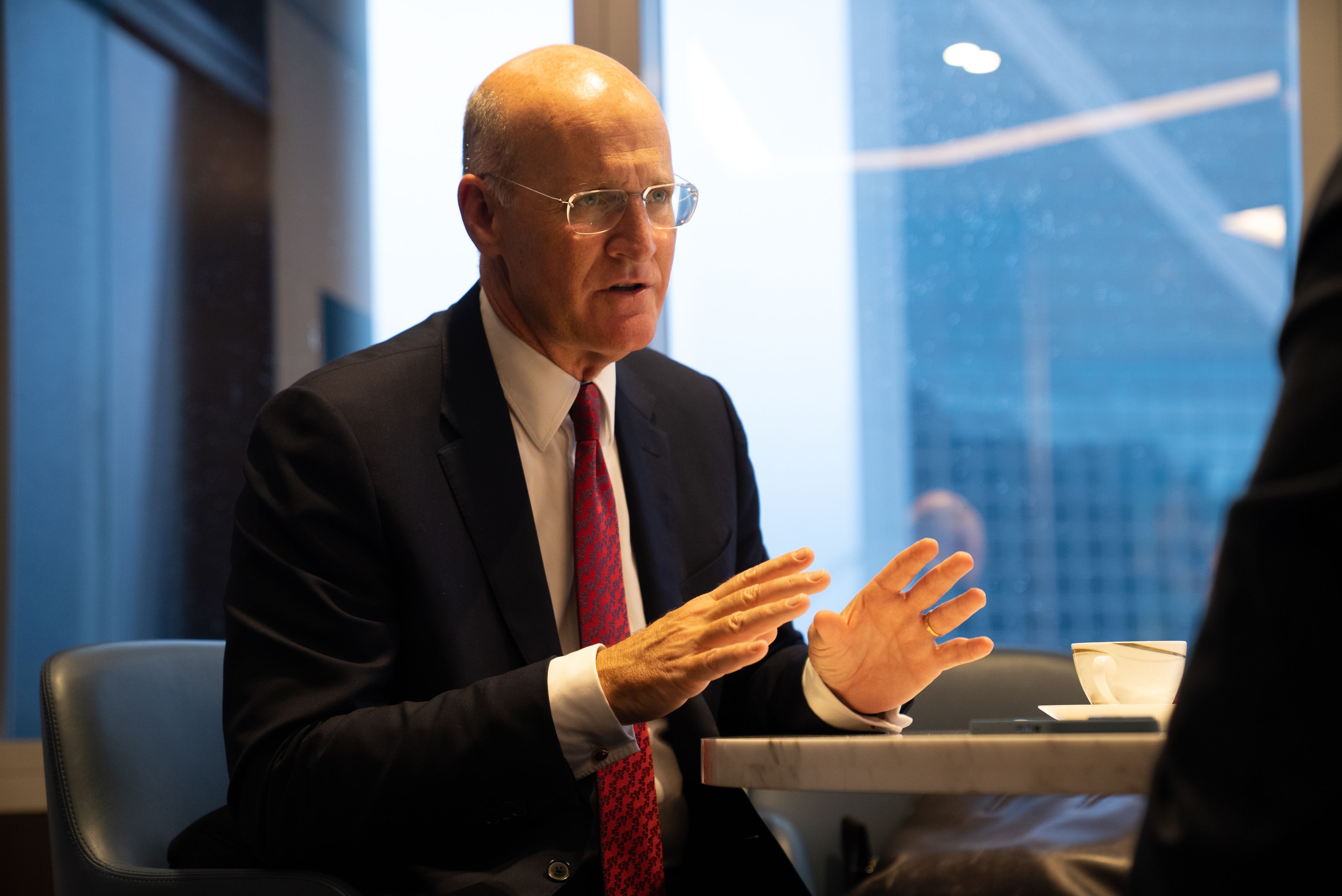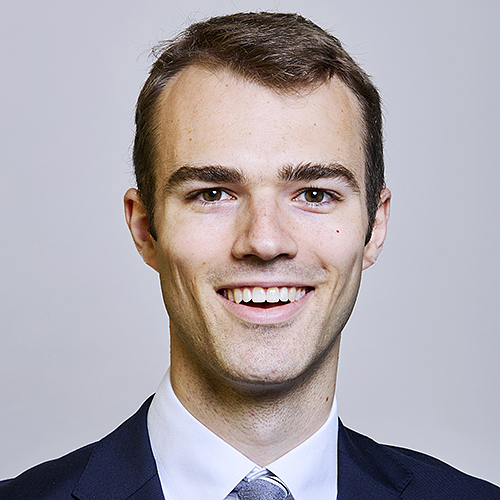“We're on the cusp of Hong Kong and Singapore both being larger than Switzerland in terms of being global wealth centres,” declares Andy Sieg, the newly minted head of wealth at Citi. In an exclusive interview with The Asset, he also believes the region to be the most exciting aspect of Citi’s wealth business.
Asia accounted for 30% of Citi’s wealth management revenue globally. In the third quarter this year, the bank reported US$1.86 billion, a rise of 2% year-on-year. In 2022, it topped US$7.4 billion, down 2% from a year ago. Sieg sees the importance of doing well in the region. “When you think about US$100 trillion of wealth creation over the next decade, what's anticipated is that 50% of the new wealth being created over the next decade will be in Asia,” he shares. “On that basis, I would expect that the contribution of the Asia wealth business to be growing relative to the rest of the world because that's where wealth creation is happening.”
Following nearly an entire career spanning three decades at Merrill Lynch Wealth Management, now part of Bank of America, Sieg recounted the opportunity in early March 2023 to meet with Jane Fraser, CEO of Citi, to hear her plans for the bank and the wealth business. “It was enormously exciting. One of the things that really struck me was wealth is central to the strategy of Citi in a very unique way. That is what drew me in.” Before the month was over, he left Bank of America and joined Citi.
 Andy Sieg, head of wealth at Citi, says he expects the bank to thrive amid the fierce competition.
Andy Sieg, head of wealth at Citi, says he expects the bank to thrive amid the fierce competition.
Sieg is aware that Asia is where the battle lines are being drawn. UBS, the biggest wealth manager by assets under management, is moving deeper into the mass affluent segment with its advisory cum digital offering. HSBC is doubling down with a bold strategy to go in-country in China, India, and Southeast Asia. In early October 2023, HSBC acquired Citi’s retail wealth management portfolio in China consisting of US$3.6 billion in assets and deposits.
Banks in Asia such as DBS are also ramping up their offerings. With Singapore becoming a hub for family offices looking for safety amid rising geopolitical tension, DBS has leveraged its strong capital base and its Singapore pedigree to open accounts for one out of every two family offices that have set up in the country, and extending digital solutions to meet clients’ needs.
At the top end, it has to contend with JPMorgan, which has a clear line of sight to bank the ultra-high-net-worth families with liquid assets of more than US$30 million following its decision to exit the lower end of the market nearly a decade ago. Another high-end provider is BNP Paribas, which distinguishes itself with a strong ESG offering and its next-generation programme.
Still, Sieg expects Citi to thrive amid the fierce competition, pointing out that the bank has relationships today with 30% of the billionaires across Asia. “When you look over the next ten years, Asia is the epicentre of global wealth creation full stop,” he says. His goal is to shift Citi’s wealth franchise into a much higher gear from a growth perspective. “This business is extremely well positioned in terms of what we can offer and where we can offer it. My number one challenge is for us to demonstrate that we can grow market share and deliver the kind of results that our shareholders expect from the business.”
He outlines the plan for Asia in the next 12 months. “We're certainly going to be adding to our team. You're going to see us expanding the ranks of our advisers. You're going to see us increasing the visibility of our business, and then you're going to see us deepening the connections between our wealth business and the other aspects of the Citi franchise.”
He gave as an example Citi’s strong penetration with corporates in the region. “One of the most understood aspects of Citi’s business is our corporate bank and the way that we connect large corporations in every country on earth every day.
“The lesser understood aspect of the business is our commercial bank, where we serve mid-sized companies across Asia. One of the great opportunities we have is for the relationships to be even stronger between our wealth business and the commercial bankers,” he believes. “Our wealth advisers in many cases know the entrepreneurs who are the next great clients of the commercial bank. In other areas of Asia, our commercial bank is there already and has relationships and is close to businesses that have wealth needs.”
 Sieg: "As standards of conduct are increasing, we view that as very positive for Citi's business."
Sieg: "As standards of conduct are increasing, we view that as very positive for Citi's business."
At the other end of the marketplace, Sieg is just as optimistic. And this is despite the decision by Citi’s Fraser to exit retail banking in Asia in April 2021 except in Hong Kong and Singapore. He notes that many of the new wealth clients are clients that are passing through the wealth continuum: coming from the credit card or retail base.
For example, 25% of acquisitions in wealth come from the credit card base in Asia; 30% of Citigold acquisitions are upgrades from the bank’s non-wealth retail base; 60% of Citigold Private Clients (CPC) acquisitions are upgrades from Citigold; and close to 25% of private bank acquisitions comprise of CPC upgrades.
“That's probably the top statistic of that type globally. I've not seen a kind of a broad-based retail banking franchise create that much of an impact on a wealth franchise ever before.” Even in the US, at Merrill Lynch Asset Management, it was less than half that level of client development.
Both Singapore and Hong Kong are showing positive momentum. Singapore is reporting a compound annual growth rate of 45% in new Citigold and CPC clients since 2020. In Hong Kong, which has a 15% share of the market’s affluent population, the number of Citigold and CPC new-to-bank clients is up 50% year-on-year in the first half of 2023, 15% higher than pre-Covid levels.
It conveys, he adds, how seamlessly the retail business and the wealth business work together in Singapore and Hong Kong. Another plus is in the area of data and analytics capabilities that the bank several years ago brought out of the credit card business and use them more broadly to identify growth opportunities and service opportunities for clients. “I'm very excited about it because it is a powerful starting point for us in terms of where we go.”
Still, with increased regulatory scrutiny of the business such as investigation of private banks underway in Singapore, Sieg is conscious of the need to focus on risk and controls as a prerequisite to compete in global wealth management. “When you look at the marketplace today, as standards of conduct are increasing, we view that as very positive for Citi's business. It moves the industry to a place where the clients’ trust in financial markets and financial institutions is higher. We have the culture and the investment in risk and controls to compete and win in that environment.”









